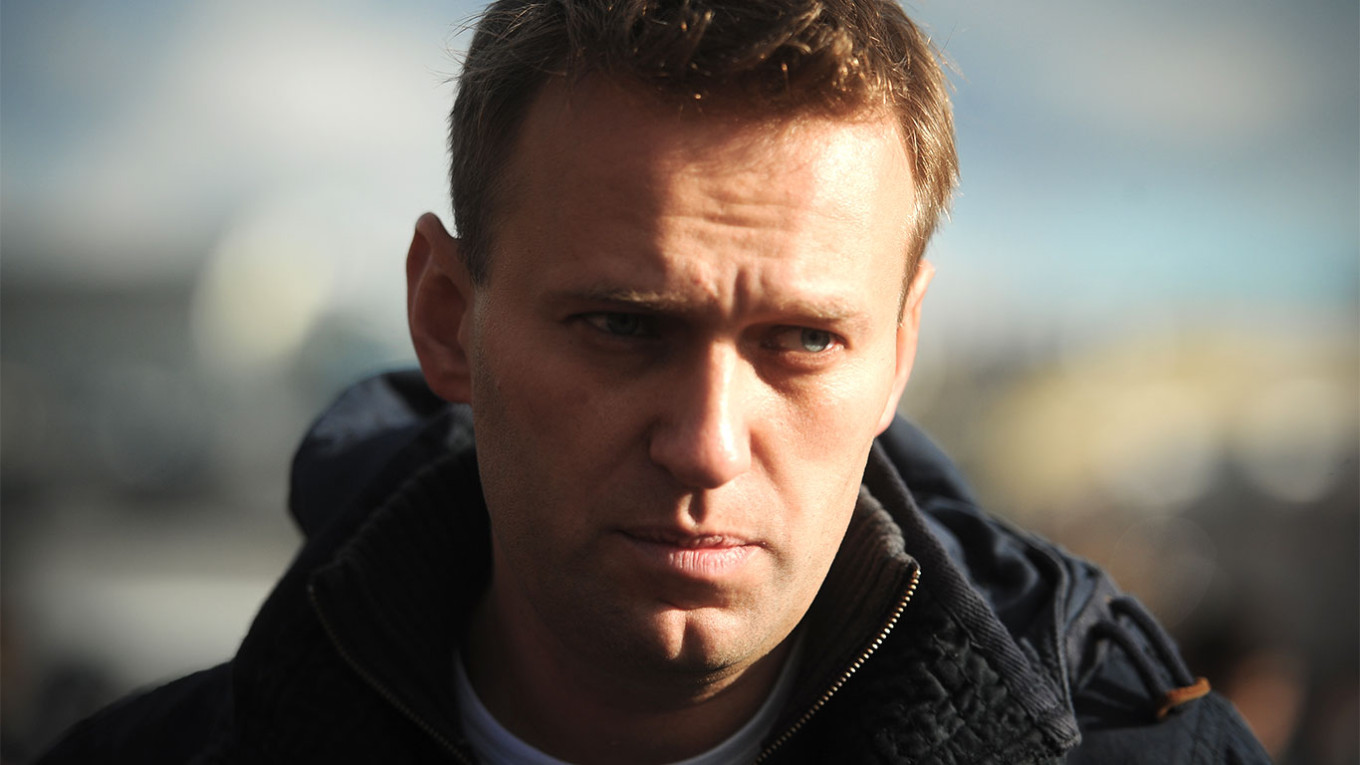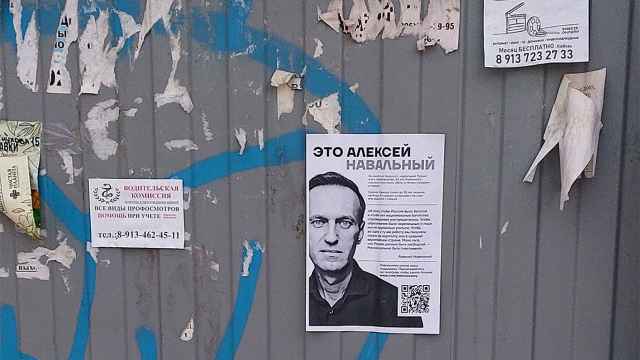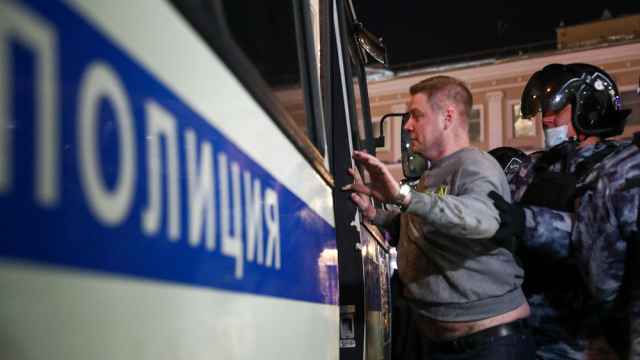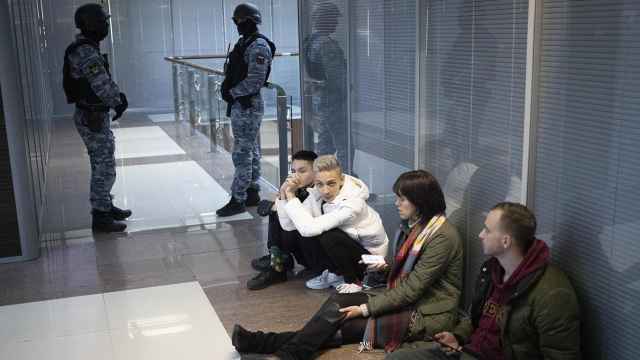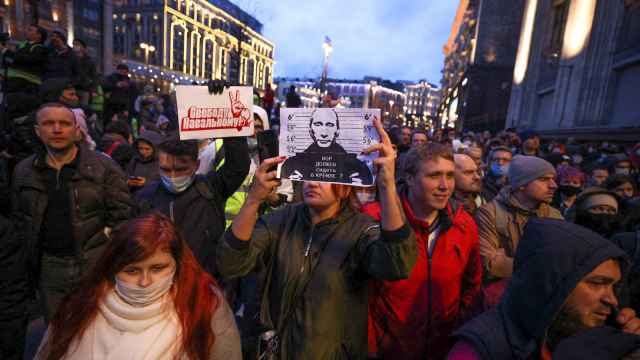Alexei Anatolievich Navalny, the most prominent opposition politician of the late Putin era, died in prison on Friday, according to the Yamalo-Nenets branch of the Federal Penitentiary Service (FSIN). He was 47.
At the time of his death, Navalny was serving a 19-year sentence on charges widely seen as politically motivated in a high-security prison colony above the Arctic Circle.
In 2012, Russian writer Viktor Shenderovich said that Navalny “went to prison as a blogger and came out as the future president of Russia.”
He would never get the chance.
Known for his online anti-corruption activities and ill-fated electoral campaigns, Navalny was a frequent target of the security services.
After leaving Russia to recover from a near-fatal poisoning allegedly carried out by the FSB, he returned in 2021 and was promptly jailed on charges of fraud and extremism.
One of President Vladimir Putin’s longest-lasting domestic political foes, he was so despised by the Kremlin that the president is only known to have uttered the name “Navalny” once, in 2013. Otherwise, he preferred to refer to him by terms such as “a poor excuse for a politician,” “the character you mentioned,” and “this gentleman.”
Navalny was born in 1976 in the closed military town of Butyn, outside Moscow, where his father, Anatoly, was a Soviet army communications officer and his mother, Lyudmila, an economist by training.
He grew up in a series of military towns where Lyudmila said his political views first emerged, overhearing Anatoly and his fellow officers saying such radical things around the kitchen table that she felt compelled to cover the windows of their house.
Another influence on Navalny was the nine summers he spent with his paternal grandmother in a Ukrainian village not far from Chernobyl. The whole of his father’s side of the family was evacuated and resettled following the 1986 disaster.
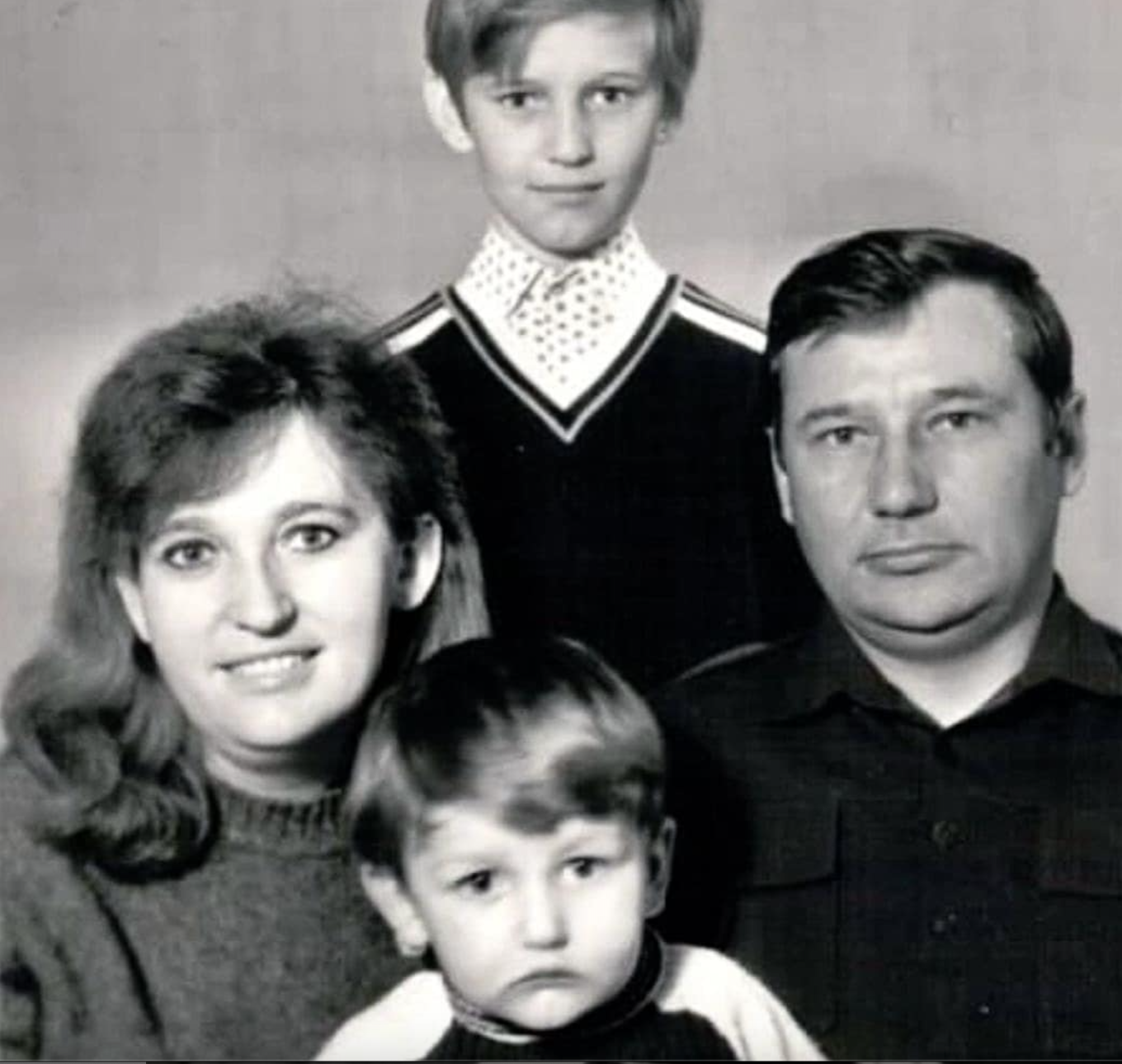
Navalny’s mother said he earned his first rubles weaving baskets for the cooperative basket factory where she worked, but he didn’t stay in the family business. Instead, he graduated in 1998 with a law degree from People’s Friendship University in Moscow, before going to work for several years in real estate.
“Working there taught me how things are done on the inside, how intermediary companies are built, how money is shuttled around,” said Navalny.
In 2001, he graduated with a master’s degree in finance from the Financial University under the Government of the Russian Federation and quit real estate to become a stock trader.
Around that time, while vacationing in Turkey, he met an economist named Yulia Abrosimova — his future wife.
In 1999, he joined the liberal Yabloko party, which became increasingly marginalized after Vladimir Putin’s election in 2000. He remained a Yabloko member, becoming deputy chief of the Moscow branch and joining their Federal Council, for the next seven years, until he was expelled from the party for calling for the removal of the party’s founder, according to Navalny — or for his nationalist views, according to the party.
Navalny had been involved in organizing the hardline nationalist Russian March, an annual march through Moscow, accompanied by chants of “Russia for Russians!” that Russian liberals considered a neo-Nazi event. Navalny said that liberals were making themselves irrelevant by failing to engage with the country’s upswing in nationalism.
Several years later, in 2013, he wrote on his blog about “hordes of legal and illegal immigrants” crawling from the bazaars of Moscow to victimize Russians, rhetoric that left would-be supporters at home and abroad hesitant to embrace him, despite his popularity.
Navalny gained international renown for his anti-corruption efforts, going after Russian oil companies, banks, and government ministries and “poking them with a sharp stick.” He started as chairman of the Yabloko-associated Committee to Protect Muscovites, aiming to fight corruption and abuse amidst the construction boom of the early 2000s.
His efforts took off in 2007, when, after buying shares in a number of state-owned companies, he found that dividends from oil transport monopoly Transneft were smaller than expected and that the company was donating hundreds of millions of dollars to unnamed charities. Attempts to push authorities to launch a criminal investigation went nowhere, and an anti-corruption crusade was born.
In addition to his LiveJournal blog, Navalny created a site dedicated to crowdsourcing evidence of state corruption called RosPil and RosYama (“Russian Hole”), a site that allowed Russians to report potholes and track government responses. These efforts would grow into his Anti-Corruption Foundation.
He accused billionaire Alisher Usmanov of bribing then-Prime Minister Dmitry Medvedev and former First Deputy Prime Minister Igor Shuvalov of using an undeclared $62-million private business jet, as well as State Duma Speaker Vyacheslav Volodin of hiding millions of dollars in assets in his mother’s name.
Between 2005 and 2012, he co-founded a movement, DA!-Democratic Alternative, which hosted political debates aimed at engaging young people, was elected to a short-lived opposition Coordination Council, co-founded the democratic nationalist National Russian Liberation Movement, NAROD, and completed a six-month fellowship at Yale, but he returned to Russia afterward, saying he missed Russian black bread too much to stay.
In 2011, following protests against alleged parliamentary election fraud, Navalny was arrested for the first time. Echo Moskvy radio station head Alexei Venediktov said this moment “[transformed] him from an online leader into an offline one.” He helped lead large protests after Putin’s victory in the 2012 presidential election and was jailed for 15 days, a pattern that would be repeated around the next presidential elections, in 2017 and 2018, and the 2019 Moscow City Duma elections.
In 2013, he was elected chairman of the People’s Alliance, an unregistered political party that would undergo several name changes to become Russia of the Future. He ran for mayor of Moscow that year, coming in second, and was attacked with green antiseptic dye several times before being blocked from running for president in 2018.
As he continued his corruption investigations, Navalny was convicted on spurious embezzlement charges in 2013, and again in 2014. He was placed under house arrest, in contravention of the Russian Criminal Code, and decided to unilaterally end his detention, cutting off his electronic monitoring bracelet and going about his business.
The European Court of Human Rights later found the trials unfair, charges “arbitrary and manifestly unreasonable” and seven of his arrests to be politically motivated, aimed at “suppressing political pluralism.”
This did not end his harassment by the state. In 2019, he and several associates were found guilty of libel and sentenced to pay over $1 million after publishing an investigation into a company linked to Yevgeny Prigozhin. Other lawsuits and criminal cases led Navalny, unable to pay mounting fines, to dissolve the Anti-Corruption Foundation in 2020.
Compounding his troubles, on a 2020 trip to the Siberian city of Tomsk, Navalny was poisoned with the Novichok nerve agent, which many believe was the work of Russia's Federal Security Service (FSB). He was flown in a coma to Berlin, where he recovered. Still in ill health, he flew back to Moscow in January 2021, where he was, as Russian authorities had warned, promptly arrested and imprisoned for violating the terms of his parole for the 2014 charges.
Navalny was determined not to become “just another political émigré,” and his return and subsequent arrest drew tens of thousands of people out onto the streets across Russia in his support.
Just two days after his arrest, the activist published a video investigation of a huge, incredibly expensive palace on the Black Sea allegedly built for Putin, which Navalny called “the world’s largest bribe.”
Upon his imprisonment, he wrote to a friend: “History is happening. Russia is going through it, and we are coming along. We’ll make it (probably). I am all right, and I have no regrets. And you shouldn’t, either, and shouldn’t worry. Everything will be all right. And, even if it isn’t, we’ll have the consolation of having lived honest lives. Hugs!”
Later, during a 2021 court appearance, he explained his motivation to return to the country: “We should fight not only against the lack of freedom in Russia but against our total lack of happiness. We have everything, but we are an unhappy country... So we should change our slogan. Russia should be not only free but also happy. Russia will be happy. That is all.”
Shortly afterward, police raided his organization’s St. Petersburg office and confiscated stickers with the new “Russia will be happy” slogan, which was reportedly investigated as a potential example of “extremist” speech.
“We thought it was only Navalny who had been arrested when, in fact, it was all of Russia that wound up behind bars,” wrote Novaya Gazeta political editor Kirill Martynov in 2022, just before the full-scale invasion of Ukraine and the wide-ranging political crackdown that followed.
“Navalny’s unparalleled courage makes him a free man, one who now gazes from his cell at a Russian society that itself has been locked up and cowed into submission.”
While in prison, Navalny went on a hunger strike to demand access to medical specialists and spent around 300 days in solitary confinement.
Amnesty International designated him a “prisoner of conscience,” and in 2021, he was awarded the European Parliament’s Sakharov Prize for Freedom of Thought for his “immense bravery” in fighting “tirelessly against the corruption of Vladimir Putin's regime,” among other human rights prizes.
That same year, the state declared Navalny’s political network a “terrorist-linked” organization and began arresting his associates, including his lawyers, for “extremism.”
This January, on the third anniversary of his imprisonment, he released a statement, read by his supporters, explaining why he had come back to Russia.
“If your convictions mean something, you must be prepared to stand up for them and make sacrifices. And if you’re not ready, you have no convictions.”
He is survived by his parents, Anatoly and Lyudmila; brother, Oleg; wife, Yulia; and children, Daria and Zakhar.
A Message from The Moscow Times:
Dear readers,
We are facing unprecedented challenges. Russia's Prosecutor General's Office has designated The Moscow Times as an "undesirable" organization, criminalizing our work and putting our staff at risk of prosecution. This follows our earlier unjust labeling as a "foreign agent."
These actions are direct attempts to silence independent journalism in Russia. The authorities claim our work "discredits the decisions of the Russian leadership." We see things differently: we strive to provide accurate, unbiased reporting on Russia.
We, the journalists of The Moscow Times, refuse to be silenced. But to continue our work, we need your help.
Your support, no matter how small, makes a world of difference. If you can, please support us monthly starting from just $2. It's quick to set up, and every contribution makes a significant impact.
By supporting The Moscow Times, you're defending open, independent journalism in the face of repression. Thank you for standing with us.
Remind me later.



